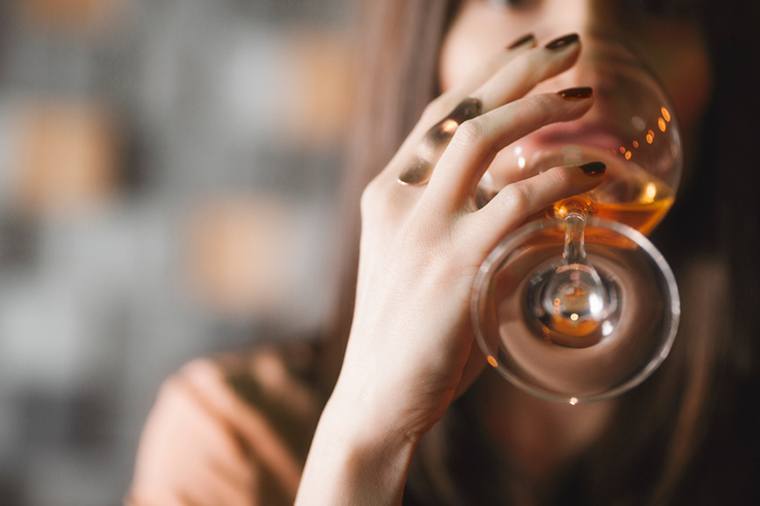Millennials' obsession (okay, everyone's obsession) with rosé seems to be #heretostay. Over the last few years, the pink drink has morphed from an occasional presence on Instagram into a permanent fixture on social media—and IRL. Rosé deodorant, rosé candy, and rosé popsicles are all real things that exist in 2017 (and that's without touching on frozé).
Considering pink wine is more popular than ever before, it’s high time to ask the question: When it comes to the rainbow of wines, where does rosé fall on the health spectrum?
"Rosé is a tad healthier than white wine, but red and orange will have more antioxidants," says nutritionist Lisa Kilgour, RHN. And in more womp womp news: Rosé also requires a lot of outside help from sulfites to keep it fresh and flavorful (white wine does, too), so anyone with a sensitivity should stay away.
But does this mean you should change your "rosé all day" mantra to "rosé every once in a while"?
Here's what you need to know about which wines are healthiest—and where rosé fits in.

The best-for-you type of wine is...
Red wine contains the highest amount of heart-healthy antioxidants of any type of wine. "The skin of the grapes is where the antioxidants live," says Kilgour. "In red wine, the skins spend the most amount of time with the juice, imparting their goodness."

{{post.sponsorText}}
Dark vintages also include resveratrol, a super antioxidant you may have noticed on skin-care labels. “Research has found that red-wine drinkers live longer, which may be from the resveratrol,” Kilgour says. The science is admittedly mixed on this: A 2014 study from Johns Hopkins University School of Medicine found no link between the compound and mortality, but other researchers point out that promising studies on mice show that resveratrol may keep your mind and muscles strong into old age. Seems like more drinking, er, testing is in order.

Don't forget about orange wine
While this sunset shade hasn’t garnered as much of an Instagram presence as its pastel pink cousin, orange wine is actually full of health benefits. Similar to red wine, the skin stays on the grapes for much longer than it does in the creation of white or rosé, meaning it's chock full of antioxidants.
"Both red and orange wine are kept fairly pure, with only a small amount of sulfur added to them, which is what many people are sensitive to,” Kilgour adds. "It’s the natural tannins that stabilize these wines.”

Choose rosé over white wine
A Sauvignon Blanc spritzer may be the least likely to stain your favorite summer shift (or your teeth), but when it comes to health, white wine ranks last. Since most varieties are made without much contact with the grape skins, they lack the rockstar antioxidants present in the other members of the vino family. White wines were also recently linked to skin inflammation issues like rosacea, while drinkers of the clearer stuff have a higher incidence of skin cancer than their Syrah-sipping friends.
If you can't seem to quit your Chardonnay habit, it's not all bad: Kilgour says drinking red or white wine could stave off dementia and Alzheimer’s Disease. And if it's that rosy life outlook you're after, try reaching for a pair of pink-hued sunglasses instead.
Rethinking your rosé obsession? There are plenty of other healthy cocktails out there to help add some color to your photo feed—like an Aperol Spritz or this seriously delicious (and equally pink!) watermelon mule.
Loading More Posts...